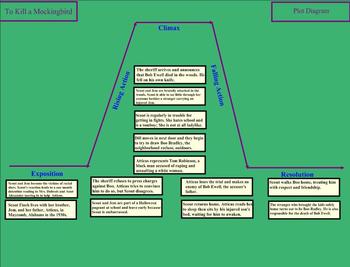
Granted, Calpurnia is more educated than the majority of her peers, but it still seems unusual that she doesn't want the children emulating that speech or those beliefs.Ĭalpurnia's attitude about the way the Finch children should speak shows that she, too, separates whites from blacks. Calpurnia says that's nigger-talk.'" Calpurnia, an African-American herself, doesn't want the white Finch children to talk like most of the black community does or to buy into their superstitions. When Jem tells Dill about Hot Steams, Scout says, "'Don't you believe a word he says, Dill. The blacks and whites separate themselves from each other by their speech - and at some level by their superstitions. These perceptions become important as the story progresses. Some of the town's residents would also say that the African Americans who live in Maycomb are blades of nutgrass that should be eradicated from "their" yard. With one exception: If she found a blade of nut grass in her yard it was like the Second Battle of the Marne" because "'one sprig of nut grass can ruin a whole yard.'" Metaphorically, the Ewells are a blade of nutgrass in the Maycomb community. Scout reports that her neighbor "loved everything that grew in God's earth, even the weeds.

Her feelings about plants are symbolic of the way some townspeople feel about others. Miss Maudie is one of the most open-minded residents of Maycomb, and true to her more liberal leanings, she even likes the weeds in her garden. When Jem suggests that knothole in the Radleys' oak is an adult's hiding place, Scout corrects him, saying, "'Grown folks don't have hidin' places.'" Jem and Scout discover later in the book that many adults hide behind their prejudices, religious beliefs, and their personal notions of right and wrong. Scout herself recognizes this fact at some level when she says, "As for me, I knew nothing except what I gathered from Time magazine and reading everything I could lay hands on at home, but as I inched sluggishly along the treadmill of the Maycomb County school system, I could not help receiving the impression that I was being cheated out of something." Scout not only learns more outside of school, but the things she learns are also more important. Scout's real education occurs outside of school, as it does throughout the story. She and Dill are posted as guards, while Jem tries to deliver the note, but Atticus intervenes, telling the children to leave the Radleys alone.Īs Scout finishes her first year of school, Harper Lee expands on several of the novel's central themes.Įducation. When Scout insists that the boys include her in their plans, they tell her that they're going to deliver a note to Boo Radley asking him to come outside. Lonely, Scout begins spending more of her time with Miss Maudie. The children play the game less frequently after that, and Jem and Dill begin excluding Scout, spending more and more time together in the treehouse. Against Scout's better judgement, they enact Boo's life with great gusto until Atticus learns of the game. After an argument with Scout, Jem suggests they play a new game called "Boo Radley," which Scout recognizes as Jem's attempt to prove his bravery. On the last day of school, she and Jem find some coins in the tree, which they decide to keep until the next school year starts.ĭill arrives two days later to spend the summer. Jem admonishes her for taking the gum, but Scout continues to check the knothole daily. When she goes back to investigate, she finds a stick of gum. One day, Scout notices something shiny in a tree at the edge of the Radley yard.

Her grade is released a half hour earlier than Jem's, so Scout has to pass Boo Radley's house by herself every afternoon.
3 themes in to kill a mockingbird full#
3 themes in to kill a mockingbird movie#

Racial Relations in the Southern United States.Aunt Alexandra and Miss Maudie Atkinson.


 0 kommentar(er)
0 kommentar(er)
